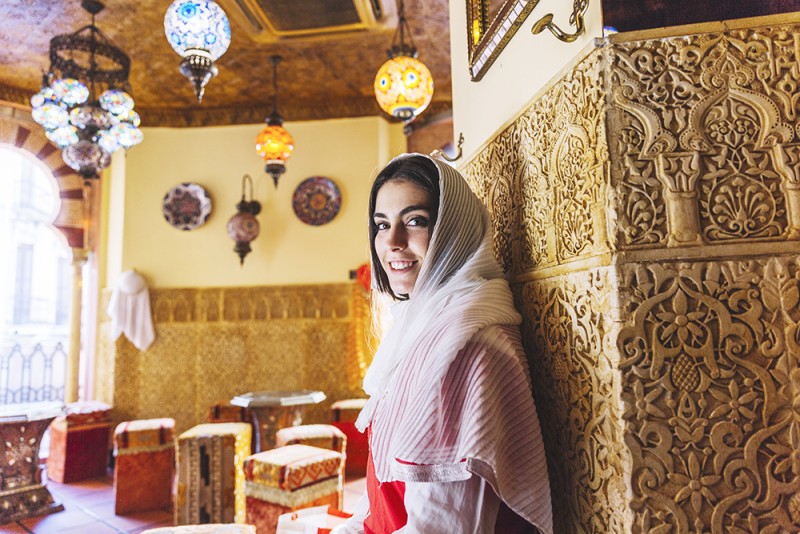
Dubai, a gleaming metropolis in the United Arab Emirates (UAE), stands as a beacon of modernity and progress. Yet, beneath its futuristic skyline and cosmopolitan vibe lies a rich tapestry of Emirati culture that shapes the city's identity. Emirati culture in Dubai is a fascinating blend of tradition and innovation, reflecting the nation's journey from a humble pearl-diving community to a global powerhouse.
Historical Roots
The roots of Emirati culture in Dubai are deeply intertwined with the region's history. Traditionally, the people of Dubai were known for their seafaring, pearl diving, and trading skills. The harsh desert environment fostered a strong sense of community, self-reliance, and hospitality, values that remain integral to Emirati society today.
Language and Religion
Arabic is the official language of Dubai, with English widely spoken due to the city's international character. Islam is the predominant religion, and its influence is evident in various aspects of daily life, from the call to prayer echoing from mosques to the observance of Ramadan, a month of fasting and spiritual reflection. The principles of Islam, including generosity, hospitality, and respect for family, underpin the social fabric of Dubai.
Traditional Attire
Emirati attire is a symbol of cultural pride and identity. Men typically wear the kandura, a long white robe, and a ghutra, a headscarf secured with an agal. Women wear the abaya, a long black cloak, and the shayla, a headscarf. These garments are not only practical for the hot climate but also embody modesty and cultural heritage. In public spaces, it's common to see a harmonious blend of traditional and modern attire, reflecting Dubai's diversity.
Architecture and Urban Development
Dubai's architecture is a testament to its cultural evolution. Traditional wind towers and courtyards in areas like Al Fahidi Historic District stand in contrast to the futuristic Burj Khalifa and the Palm Jumeirah. This juxtaposition illustrates how Dubai respects its past while embracing the future. The preservation of heritage sites alongside cutting-edge developments showcases the city's commitment to honoring its roots.
Cuisine
Emirati cuisine is a delightful reflection of the region's geography and history. Traditional dishes like machbous (spiced rice with meat), harees (wheat and meat porridge), and luqaimat (sweet dumplings) offer a taste of the local culinary heritage. Influences from Indian, Persian, and African cuisines are also evident, a legacy of Dubai's history as a trading hub. The city’s dining scene is now a global affair, with world-class restaurants offering a myriad of international flavors.
Arts and Festivals
The Emirati cultural scene in Dubai is vibrant and dynamic. The city hosts numerous events and festivals celebrating local and international art, music, and literature. The Dubai International Film Festival and the Emirates Airline Festival of Literature are prominent examples. Traditional arts such as Al-Ayyala (a traditional group dance) and poetry are also cherished, with efforts made to keep these practices alive through cultural institutions and festivals.
Social Etiquette and Values
Hospitality is a cornerstone of Emirati culture. Visitors to an Emirati home are greeted with warmth and generosity, often offered dates and Arabic coffee. Respect for elders, strong family ties, and a sense of community are deeply ingrained values. While Dubai is progressive, it maintains a conservative undercurrent that visitors are encouraged to respect, especially in terms of dress code and public behavior.
The Balance of Tradition and Modernity
Dubai’s success lies in its ability to balance tradition with modernity. The city's leadership has been keen on preserving cultural heritage while fostering an environment conducive to innovation and global integration. This balance is evident in initiatives like the Sheikh Mohammed Centre for Cultural Understanding, which promotes awareness and appreciation of Emirati culture among expatriates and visitors.
Conclusion
Emirati culture in Dubai is a compelling narrative of tradition coexisting with modernity. It is a culture that honors its past while embracing the future, creating a unique and harmonious blend that defines Dubai’s character. As the city continues to grow and evolve, the preservation and celebration of its rich cultural heritage remain pivotal, ensuring that the spirit of Emirati culture endures amidst the rapid pace of change.



